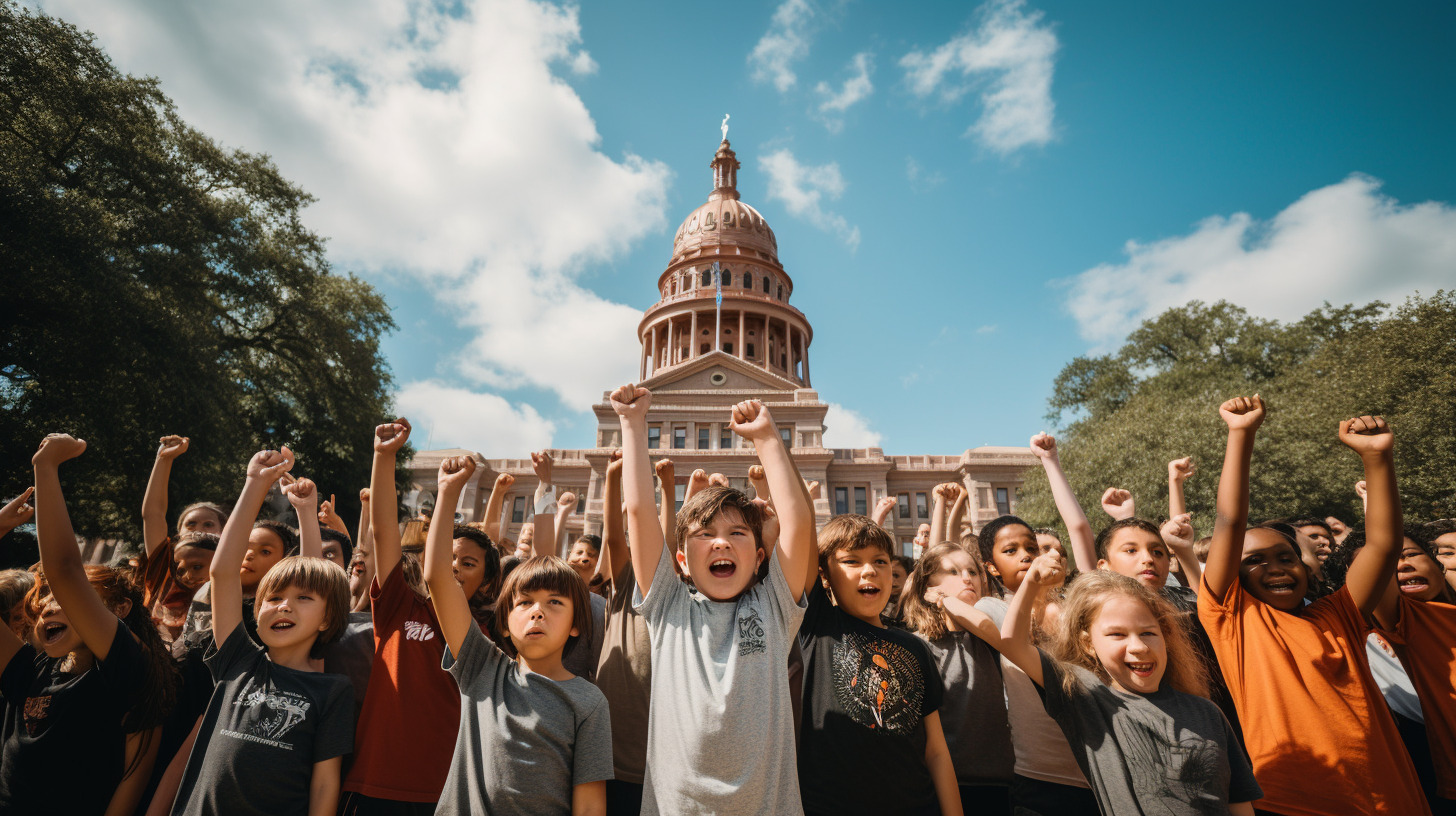
The Texas Legislature is widely expected to convene in yet another special legislative session in the coming weeks. This time they will reportedly focus on education freedom and parental choice or school choice and salary increases for government school teachers.
Education freedom was an emergency item enumerated by Texas Gov. Greg Abbott (R) at the State of the State Address in the midst of the regular legislative session that took place earlier this year. Still, it was a topic that ultimately was left unaddressed by the Texas Legislature when the dust settled upon the session’s conclusion.
In the months since, it is unclear whether the political calculus has changed much, especially in the wake of the impeachment trial for Texas Attorney General Ken Paxton in the Texas Senate. If anything, all signs point to the road ahead being even more perilous.
Elephant in the Room
One of the outcomes of the recent impeachment process, besides the vindication of Paxton, is that there is continued infighting between leadership in both legislative chambers and it has seemingly reached a fever pitch.
At the conclusion of the Paxton trial, Texas Lieutenant Governor Dan Patrick (R) took a few minutes to admonish the process by which the Texas House of Representatives chose to impeach Paxton while also calling for an audit of the taxpayer money used in the process. In response, Texas House Speaker Dade Phelan (R) released a statement chiding Patrick over “confessing his bias and placing his contempt for the People’s House on full display.”
This public infighting follows months of public spats between leadership in both legislative chambers on a number of issues, including property tax relief efforts and other issues that ultimately made for a dismal legislative session for Texas taxpayers.
All of this leads to the question of prospects for things like school choice which has also been a divisive issue for lawmakers in both legislative chambers for multiple legislative sessions.
Abbott and Patrick have both been longtime public supporters of school choice. In 2017, an effort was made for Education Saving Accounts (ESA) but was ultimately stifled in the House, continuing what has proven in recent legislative history to be the bulwark against such efforts.
What Will Be Different This Time?
In the most recent legislative session, several pieces of legislation were filed that would have implemented varying school choice programs in Texas. The only one that was ever considered was legislation authored by State Sen. Brandon Creighton (R-Conroe), which ultimately passed the Texas Senate by a vote of 18 to 13, with only one Republican, State Sen. Robert Nichols (Jacksonville) voting against it in early April but never successfully passed out of the House Public Education Committee before the legislative session’s conclusion.
Just one day earlier the Texas House of Representatives considered the biennial state budget for the next two fiscal years (2024-25). A successful amendment offered by outgoing State Rep. Abel Herrero (D-Robstown) was added to the legislation that ultimately sought to preclude any taxpayer money from being appropriated to efforts for school choice. Specifically, the amendment said, “Money appropriated by this Act may not be used to pay for or support a school voucher, including an education savings account, tax credit scholarship program, or a grant or other similar program through which a child may use state money for non-public primary or secondary education.” The amendment was voted on and was successfully adopted by a vote of 86 in favor and 52 in opposition.
Notably, the following Republican House lawmakers voted in favor of precluding any money be appropriated for the purpose of school choice: State Reps. Steve Allison (San Antonio), Trent Ashby (Lufkin), Ernest Bailes (Shepherd), Keith Bell (Forney), DeWayne Burns (Cleburne), Travis Clardy (Nacogdoches), Drew Darby (San Angelo), Jay Dean (Longview), Charlie Geren (Fort Worth), Justin Holland (Heath), Kyle Kacal (College Station), Ken King (Canadian), John Kuempel (Seguin), Stan Lambert (Abilene), Brooks Landgraf (Odessa), Andrew Murr (Junction), Angelia Orr (Itasca), Four Price (Arlington), John Raney (Bryan), Glenn Rogers (Graford), Hugh Shine (Temple), Reggie Smith (Van Alstyne), David Spiller (Jacksboro), and Gary VanDeaver (New Boston).
It is also worth noting that the following lawmakers voted present, not voting: State Reps. Brad Buckley (R-Salado), David Cook (R-Mansfield), Mano DeAyala (R-Houston), Harold Dutton (D-Houston), Frederick Frazier (R-McKinney), Caroline Harris (R-Round Rock), John Lujan (R-San Antonio), Shelby Slawson (R-Stephenville), Kronda Thimesch (R-Lewisville), and Ed Thompson (R-Pearland).
Given this reality, what has changed?
Upon passage of the Senate, Creighton’s legislation would have, among other things, created an Education Savings Accounts (ESA) program, emphasizing the right of parents to choose the education setting for their children allowing free transfer between school districts as well as the ability to attend private schools. The ESA program would have been administered by the Texas Comptroller and have provided families who left the government school system or who were enrolling in prekindergarten or kindergarten for the first time with $8,000 to be spent on tuition and fees and other educational expenses such as textbooks, uniforms, tutoring, transportation, and academic assessment fees. The legislation would have also ensured that none of the money used for ESAs come from funds appropriated for government schools already, costing taxpayers more. The legislation would have given $10,000 for two years for each student which leaves school districts with fewer than 20,000 students in use of the ESA program, more than what was being allotted in the ESA itself ($8,000) for that student, costing taxpayers even more money.
As the legislation was being considered in the House Public Education Committee it was subjected to sweeping changes before ultimately never being voted out of the committee. Some of those changes included changing the allocations for students and subjecting them to a tiered system where $10,500 would be allocated for a child who has a disability and is considered low-income, $9,000 for either a special needs student or low-income student, and $7,500 for all other eligible students.
Uphill Battle
All of this points to an uphill battle between leadership in both legislative chambers and lawmakers themselves, especially those who represent primarily rural districts having historically been the most opposed to such efforts. Even with legislation offering gimmicks in the hopes of bringing lawmakers on board with the idea, they could not get it across the legislative finish line. Now, with Texas politics taking the shape of more and more of an ongoing social media spat, the road to success for school choice advocates looks bleak.
What is Next?
Though no official announcement has been made at the time of this publication, it is widely expected that Abbott will convene a special legislative session in the coming weeks on the issue of education freedom and parental choice as well as salary increases for government school teachers.
Texans for Fiscal Responsibility (TFR) supports the idea of school choice. TFR will oppose the legislation, however, that does not provide school choice for all Texans or includes gimmicks like those of bribing government school districts with additional taxpayer money if a student chooses to attend a school somewhere else. TFR also opposed any legislation that would impose regulations on families that choose to homeschool their children and believes that if taxpayer money is to be used for such purposes as to provide for government schools it should do so in an efficient manner.
Similarly, TFR believes legislation that seeks to increase salaries for government school teachers should have strong protections against having that money be used for government school administration. Texas already shells out an obscene amount of taxpayer money to government schools at both the state and local levels with many times terrible educational outcomes. Texas has a sordid history with ridiculous salaries for superintendents and other administrative officials at the hands of taxpayers, with many getting paid more than that of the governor of the state of Texas. Whatever the outcome of the upcoming special legislative session, efforts need to be made to good stewardship of taxpayer money.
Concerned taxpayers can contact their lawmakers.
Texans for Fiscal Responsibility relies on the support of private donors across the Lone Star State in order to promote fiscal responsibility and pro-taxpayer government in Texas. Please consider supporting our efforts! Thank you!
Get The Fiscal Note, our free weekly roll-up on all the current events that could impact your wallet. Subscribe today!




